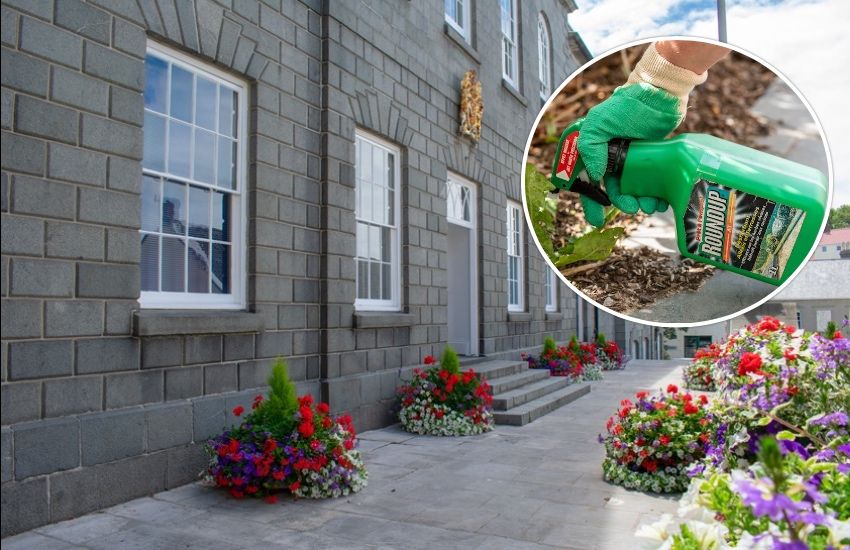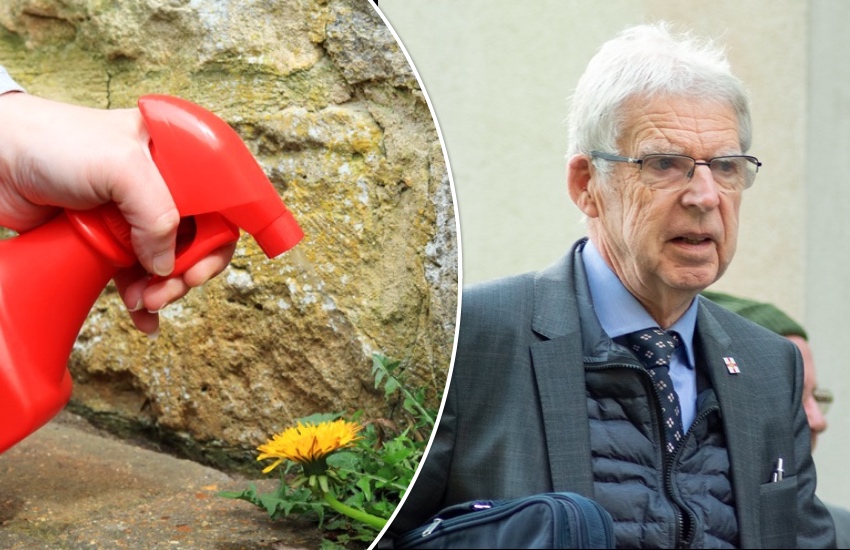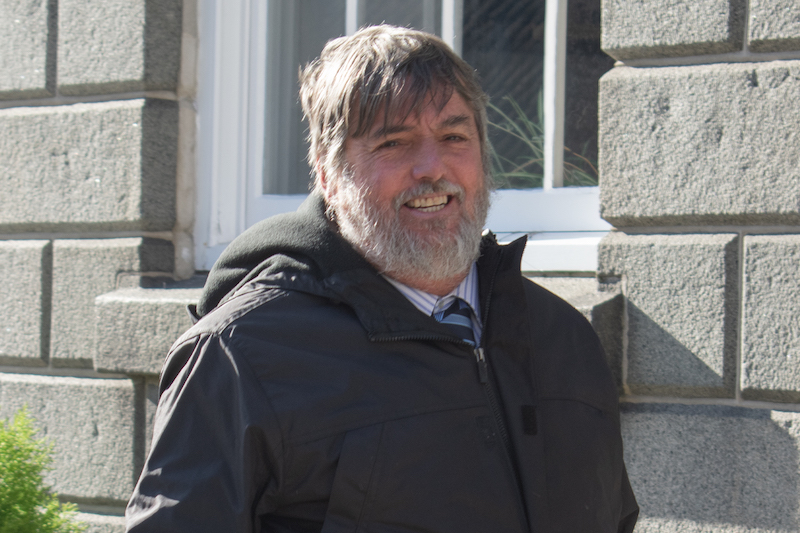


Clarifications have been given regarding the on-going monitoring of the professional use of glyphosate as several deputies prepare to lead the charge to completely ban the agrochemical in the next States meeting.
Deputy David de Lisle, who has campaigned against the use of glyphosate for many years, is leading a Requête in the coming weeks to revoke “all existing approvals of plant protection products (pesticides) containing the active substance glyphosate”.
He unsuccessfully attempted to persuade the States Assembly to do so in 2019, but a fresh attempt will occur at the first States meeting of 2023, which starts on January 25.
His Requête has been signed by Deputies Rob Prow, Mark Helyar, Andrea Dudley-Owen, David Mahoney, Sue Aldwell, and Lester Queripel.
In between these attempts, Employment & Social Security announced that the domestic use and storage of glyphosate would be banned by December 31 2022, and only accredited professionals would be permitted to use it.
But Deputy de Lisle told Express that this was a “half measure” and indicated he would still attempt to ban the controversial chemical from amateur or professional use to prevent further contamination to the water supply and human health.
But States officials believe a full ban would not be proportionate at this stage and could increase risks in controlling non-native invasive species in the Bailiwick.

Pictured: You can read Deputy de Lisle's Requête HERE.
Deputy Lester Queripel, one of the Requête supporters, submitted a series of questions over Christmas to Deputy Peter Roffey, President of the Committee for Employment & Social Security, which has political responsibility for health and safety matters.
Deputy Roffey said that the monitoring of the professional use of the weed killer is already in force, under regulations introduced in 2014.
Under regulation 16 of the Control of Poisonous Substances, Employment & Social demands that professional users, such as gardening firms, “to have obtained a certificate of competence in the safe use of pesticides - known as a City & Guilds NPTC certificate”.
A public register of approved substances is also maintained by the Health & Safety Executive, an ESS department, which also checks personal business registers, known as PS3’s, where lists of poisonous substances used are detailed.
Deputy Roffey claimed a complete ban of the chemical was not considered when the amateur ban was announced since it was already agreed to gradually phase out the use of glyphosate where evidence showed it was harmful to people or the environment.
“On consideration of the current available evidence, the Committee maintains that the ‘professional-only’classification for glyphosate is proportionate and should remain in place until further evidence becomes available to enable an informed decision to be made about whether a wider ban should be implemented.”
Environment President Deputy Lindsay de Sausmarez fears that an outright ban on glyphosate may see professional users turn to more damaging alternatives.
Deputy Roffey explained: “These risks include potential difficulties in controlling invasive species, such as Japanese Knotweed; an increase in the use of other herbicides by professionals with different risk profiles as a substitute to glyphosate with potential to adversely impact upon water quality; and resulting changes in costs and yields for local farmers and growers, placing an increased burden on an already struggling sector”.

Pictured: Deputy Roffey made the case for allowing accredited professionals to continue using glyphosate.
Glyphosate concentrations are the highest in northern parish streams, with those in the Vale Pond catchment area showing the highest readings.
The STSB reiterated the previous stance of Guernsey Water after the partial ban was announced that “drinking water supplied to customers in all areas of the island consistently comply with the European drinking water standard for glyphosate”.
The Health & Safety Executive say they have been in “regular contact with retailers since before the 2019 Requête was laid” and they were “supportive of the gradual approach” to restricting sales to amateur users.
“The timetable to phase out the non-professional use of glyphosate was developed in liaison with the retailers with a view to ensuring that they did not purchase stock for 2023 that could no longer be sold following the implementation of the ban on amateur use,” added Deputy Roffey.
If the Requête is accepted it would mean the Employment & Social Security would need to revoke all existing approvals of pesticides including glyphosate.
The chemical could then be completely banned in the Bailiwick by the end of this year.
Weedkiller will be banned this year
Islanders must "act urgently" to protect water supply
Guernsey Water warns "spray now, pay later" over urgent pesticide problem
Campaigning deputy says partial ban on weedkiller is "a half measure”
Video linking weedkiller and autism broke deputies' code of conduct
Comments
Comments on this story express the views of the commentator only, not Bailiwick Publishing. We are unable to guarantee the accuracy of any of those comments.